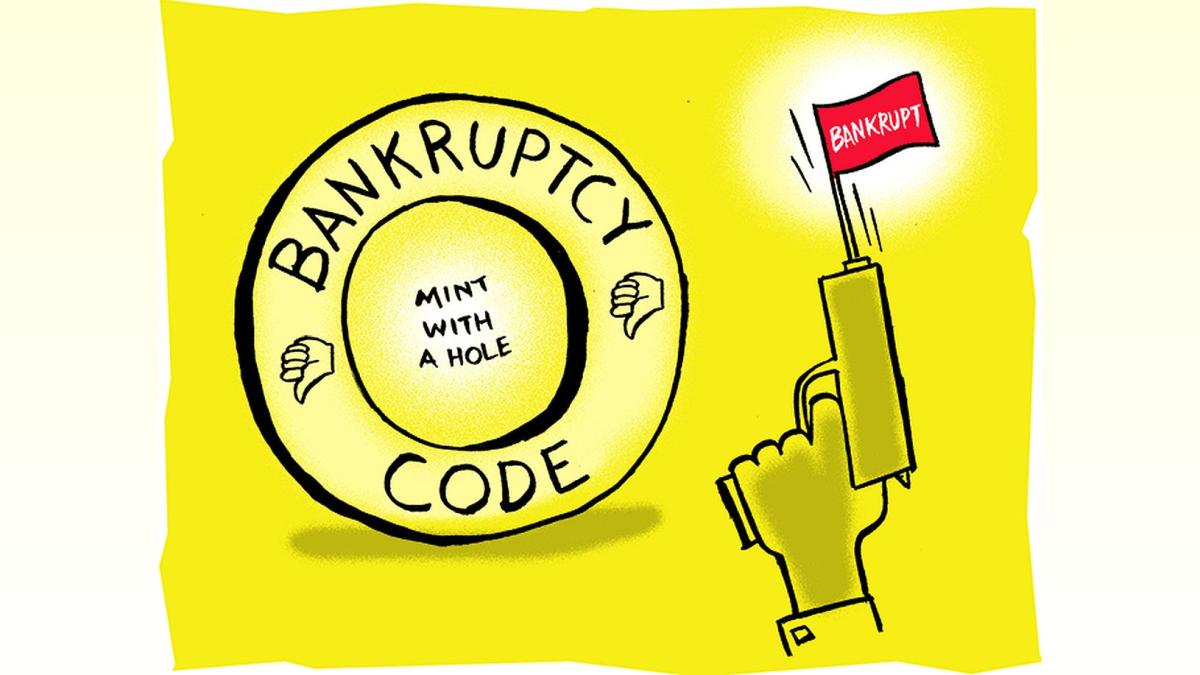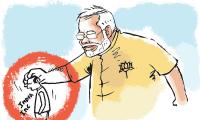IBBI Chief: Cos Should Use Voluntary Insolvency for Productivity
IBBI chief Ravi Mital calls on Indian companies to embrace voluntary insolvency to boost productivity and maximize value, citing the success of such processes in developed countries. Learn more about the IBC and its potential benefits.

Illustration: Dominic Xavier/Rediff.com
New Delhi, Jan 30 (PTI) IBBI chief Ravi Mital on Thursday said companies in India have not learnt how to use the insolvency law and pitched for efforts to ensure that more companies opt for the voluntary resolution process to increase productivity.
The Insolvency and Bankruptcy Code (IBC), which provides for a market-linked and time-bound resolution of stressed assets, came into force in 2016.
So far, most of the insolvency resolution processes have been initiated by creditors while in comparison voluntary applications have been less.
Speaking at a conference organised by industry body Assocham and accounting body CPA Australia in the national capital, Mital said creditors have recovered around Rs 3.6 lakh crore has been recovered by creditors under the IBC in the last eight years.
The Insolvency and Bankruptcy Board of India (IBBI) is a key institution in implementing the IBC.
Emphasising that creditor-debtor relationship has changed with the implementation of the Code, Mital said cases involving debts worth Rs 11 lakh crore have been settled even before getting admitted for the insolvency resolution process.
"It is preferrable that companies themselves come into insolvency... that is where we make maximum value, that is where value destruction is the least...," Mital said.
In India, insolvency cases are initiated by creditors against companies.
"In the developed world, most of the applications under insolvency are voluntary applications. In the US, we call it Chapter 11," Mital said.
He also said it means in the US and other developed countries, insolvency is not an adversarial process. In India, it is creditors which file for insolvency resolution process, then it becomes an adversarial process,
"I think companies in India have not learnt on how to use insolvency to make (them) more productive... if Assocham wants, IBBI is willing to collaborate to have a discussion with them to see the problems they are facing.
"Why are companies not coming forward? Why are we not getting Section 10 applications? There must be a reason... we are willing to talk to companies... to see if there are problems, roadblocks, we will try to resolve that," Mital said.
Section 10 of the IBC pertains to voluntary insolvency resolution process.
The Insolvency and Bankruptcy Code (IBC), which provides for a market-linked and time-bound resolution of stressed assets, came into force in 2016.
So far, most of the insolvency resolution processes have been initiated by creditors while in comparison voluntary applications have been less.
Speaking at a conference organised by industry body Assocham and accounting body CPA Australia in the national capital, Mital said creditors have recovered around Rs 3.6 lakh crore has been recovered by creditors under the IBC in the last eight years.
The Insolvency and Bankruptcy Board of India (IBBI) is a key institution in implementing the IBC.
Emphasising that creditor-debtor relationship has changed with the implementation of the Code, Mital said cases involving debts worth Rs 11 lakh crore have been settled even before getting admitted for the insolvency resolution process.
"It is preferrable that companies themselves come into insolvency... that is where we make maximum value, that is where value destruction is the least...," Mital said.
In India, insolvency cases are initiated by creditors against companies.
"In the developed world, most of the applications under insolvency are voluntary applications. In the US, we call it Chapter 11," Mital said.
He also said it means in the US and other developed countries, insolvency is not an adversarial process. In India, it is creditors which file for insolvency resolution process, then it becomes an adversarial process,
"I think companies in India have not learnt on how to use insolvency to make (them) more productive... if Assocham wants, IBBI is willing to collaborate to have a discussion with them to see the problems they are facing.
"Why are companies not coming forward? Why are we not getting Section 10 applications? There must be a reason... we are willing to talk to companies... to see if there are problems, roadblocks, we will try to resolve that," Mital said.
Section 10 of the IBC pertains to voluntary insolvency resolution process.
You May Like To Read
TODAY'S MOST TRADED COMPANIES
- Company Name
- Price
- Volume
- Vodafone-Idea-L
- 11.65 (+ 3.56)
- 106772451
- Alstone-Textiles
- 0.28 ( -3.45)
- 44187760
- Mangalam-Industrial
- 0.88 ( -2.22)
- 39177573
- Sunshine-Capital
- 0.27 (+ 3.85)
- 35956340
- GMR-Airports
- 104.40 (+ 6.37)
- 30453005




